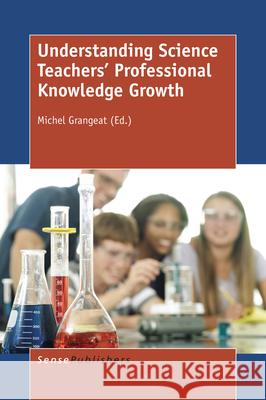Understanding Science Teachers' Professional Knowledge Growth » książka
Understanding Science Teachers' Professional Knowledge Growth
ISBN-13: 9789463003117 / Angielski / Miękka / 2015 / 240 str.
Understanding Science Teachers' Professional Knowledge Growth
ISBN-13: 9789463003117 / Angielski / Miękka / 2015 / 240 str.
(netto: 178,07 VAT: 5%)
Najniższa cena z 30 dni: 180,57
ok. 22 dni roboczych.
Darmowa dostawa!
Science education has to be improved in order to become more responsive to the needs of society confronted with a rapidly changing world. Bringing science teaching up to a higher level is a key factor in this endeavour. The authors of this book think about teachers as part of the immediate and large communities and systems in which they function. They consider the development of teachers' professional knowledge as a continuous process that depends on the communities they are committed to and participate in, the discipline they are teaching, the social context in which they perform, the instruments made available in their environment, and their day-to-day classroom experience. From this perspective, each teacher learns in an individual way, but cannot learn without relying on their colleagues and other partners. Such professional knowledge is partly tacit and explicit, and thus possessed by teachers, experts and researchers. Coordinating activity theory and models of pedagogical content knowledge (PCK), the book provides a better understanding of the growth of science teacher professional knowledge. The chapters are organised around shared perspectives and themes and based on research findings. The emerging model can inform pre-service teacher educators, researchers and students. The book results from exchanges and symposia during international conferences (ECER, ESERA) and from a two-day seminar held at Universite Grenoble Alpes in March 2015."
Science education has to be improved in order to become more responsive to the needs of society confronted with a rapidly changing world. Bringing science teaching up to a higher level is a key factor in this endeavour.The authors of this book think about teachers as part of the immediate and large communities and systems in which they function. They consider the development of teachers professional knowledge as a continuous process that depends on the communities they are committed to and participate in, the discipline they are teaching, the social context in which they perform, the instruments made available in their environment, and their day-to-day classroom experience. From this perspective, each teacher learns in an individual way, but cannot learn without relying on their colleagues and other partners. Such professional knowledge is partly tacit and explicit, and thus possessed by teachers, experts and researchers. Coordinating activity theory and models of pedagogical content knowledge (PCK), the book provides a better understanding of the growth of science teacher professional knowledge. The chapters are organised around shared perspectives and themes and based on research findings. The emerging model can inform pre-service teacher educators, researchers and students. The book results from exchanges and symposia during international conferences (ECER, ESERA) and from a two-day seminar held at Université Grenoble Alpes in March 2015.











